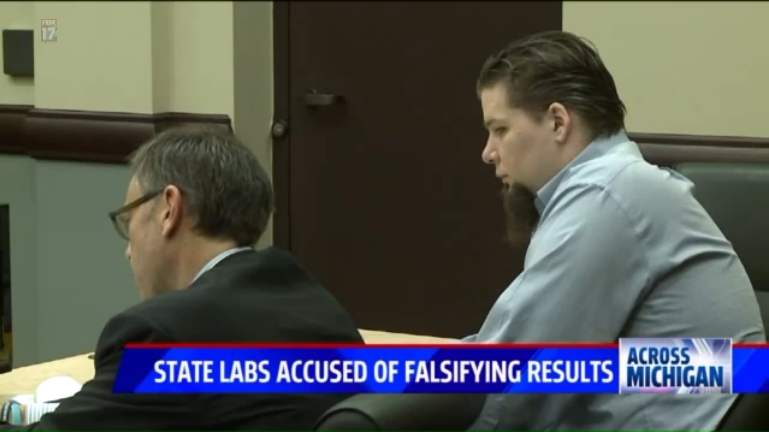For the first time, scientists have uncovered the precise neurological impacts of cannabis use that give rise to the phenomenon famously referred to as the “munchies,” as revealed by an innovative study backed by federal funds.
Researchers at Washington State University (WSU) have recently published their findings in the journal Scientific Reports, shedding valuable light on the neural mechanism through which cannabis activates a specific cluster of neurons in the hypothalamus region of the brain, resulting in an increased stimulation of appetite.
The hunger-inducing effects of marijuana are well-known among consumers. However, recent findings from animal research provide valuable insights that could potentially lead to targeted therapeutics for addressing conditions such as anorexia.
RESTORE YOUR SECOND AMENDMENT RIGHTS
RESTORE YOUR PROFESSIONAL LICENSE
RESTORE YOUR DRIVER LICENSE
RESTORE YOUR PAST (Expungements)
Call our Office for a free case evaluation
Komorn Law (248) 357-2550
Professional License Restoration / Rights Restoration / Record Expungments / Driver License Restoration
After exposing mice to vaporized cannabis, the researchers utilized calcium imaging technology, akin to a brain MRI, to monitor the changes in neuron activity. Through their investigation, they discovered that marijuana vapor attached to cannabinoid-1 receptors in the brain and activated Agouti Related Protein neurons in the hypothalamus, commonly known as “feeding” neurons.
Calcium imaging has been used to study the brain’s reactions to food by other researchers, but this is the first known study to use it to understand those features following cannabis exposure.
As part of this research, it was discovered that the cannabinoid-1 receptor, which is a target of cannabis, regulates the activity of Agouti Related Protein neurons. These particular neurons are well-known for their involvement in controlling feeding behavior and are located in the hypothalamus. This finding sheds light on the intricate connection between the cannabinoid system and the regulation of these essential cells in the brain.
With the help of this information, scientists employed a “chemogenetic” technique, acting as a molecular light switch, to specifically target these neurons in animals exposed to cannabis. By deactivating these neurons, the appetite-stimulating effects of cannabis were no longer present.

Komorn Law – Federal Courts and All Michigan Courts
“We now know one of the ways that the brain responds to recreational-type cannabis to promote appetite,” said Davis.
This work builds on previous research on cannabis and appetite from Davis’ lab, which was among the first to use whole vaporized cannabis plant matter in animal studies instead of injected THC—in an effort to better mimic how cannabis is used by humans.
In the previous study, researchers discovered genetic alterations in the hypothalamus as a response to cannabis. Therefore, in this investigation, Davis and his colleagues specifically concentrated on this particular region.
Now tell us why it makes food taste so much better!
Read more here – Cannabis activates specific hunger neurons in brain
More Posts

Forensic scientists blast State Police crime lab THC policy as man fights to get son back
Maxwell Lorincz lives in Spring Lake near Lake Michigan with his wife and their six-year-old son. At least, they did live with their son, until a year and a half ago. They lost custody of him after Lorincz was charged with a felony for possessing synthetic THC....

People v Redden & Clark – MI Medical Marijuana hearing – February 20 2013
During this February 20, 2013 hearing, Assistant Oakland County Prosecutor Beth Hand notified the court that her office is contemplating filing criminal charges against a medical doctor for his involvement in certifying two medical marijuana patients, Robert Redden...

Medical marijuana lawyers want state crime lab moved out of Michigan State Police
"The attorneys claim the policy change is leading to unfair felony charges for patients who would otherwise face misdemeanors." Posted on MichiganRadio.org A group of criminal defense attorneys says the Michigan State Police (MSP) should no longer...

Defense attorneys seek fed inquiry of MSP crime labs
Southfield — Three defense attorneys are asking the federal government to investigate the Michigan State Police crime laboratories, alleging misconduct in their testing for pending drug cases. Southfield defense attorneys Neil Rockind and Michael Komorn, along...

MI Cops Change Policy So They Can Falsely Imprison Legal Pot Smokers
In 2008, an overwhelming majority of Michigan voters approved legislation to legalize marijuana for medical use in the state. With nearly 50,000 Michigan residents arrested and incarcerated each year for controlled substance violations, the state’s prison industrial...

Attorney Alleges Authorities `Bend The Science’ To Elevate Marijuana Cases
MIRS-Michigan Independent Source Of News and Information Friday Nov 6, 2015 Maxwell LORINCZ, of Spring Lake, says a fingerprint of oil on an empty plastic container led to his arrest on a drug charge on Sept. 24, 2014. Now, a year later, the case that might have...

Drug felonies without credible proof? — Allegations of politicking in state police crime labs
GRAND RAPIDS, Mich. – First on FOX 17, we broke serious allegations that state police crime labs are being told to falsely report marijuana test results. This is resulting in misleading lab reports that an attorney claims creates felonies without real proof. ...

Attorney: Crime labs ‘falsified’ marijuana reports
A Southfield lawyer alleges the Michigan State Police crime labs have “falsified lab reports on marijuana statewide” and he’s asking a judge to dismisses charges lodged against a client. Michael Komorn, who also represents defendants in Livingston County, said...

Hearing in alleged false crime lab marijuana reporting dropped this week
OTTAWA COUNTY, Mich. – The evidentiary hearing originally set for Nov. 5 has been dropped in the case involving a medical marijuana patient charged with a disputed felony for synthetic THC, the psychoactive ingredient in marijuana. The Ottawa County Assistant...

“A non-stop political game:” Former MSP Forensic Science director on false marijuana reporting …
DEWITT, Mich. – A former director of Michigan State Police Forensic Science addressed the serious allegations FOX 17 uncovered, which accuse the Attorney General’s office and state prosecutors of influencing state police crime labs to falsely report marijuana;...








